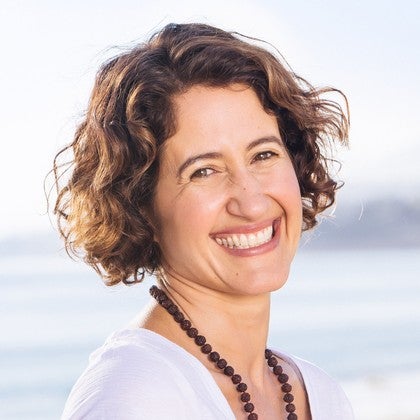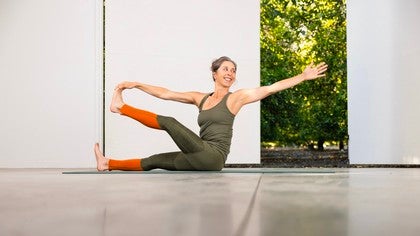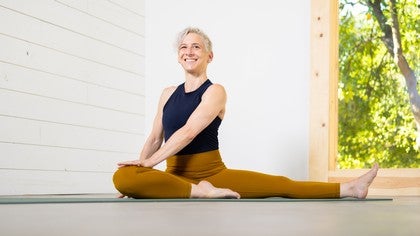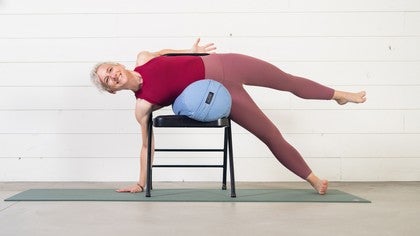Educate for Heart Health Awareness
For Heart Health Month, we spoke with four experts from different modalities to more intimately understand the qualities of a healthy heart. Dr. Jennifer Haythe, Cardiologist at Columbia University Hospital in New York, is an advocate for increasing awareness about the truths of heart disease and educating to reduce its grips.Yoga Anytime: What drew you to the study of the heart?Jennifer Haythe: When I was younger, in my training, cardiology was an exciting field to be in. There was a lot of drama and action. It felt like there was a lot you could do. We had so many therapeutic interventions. You could really make people better.Now that I’m older, I’m no longer in that emergency room drama. That’s what the residents and fellows handle. No more middle of the night stuff. You become someone’s long term heart doctor. You have relationships with the patients and the family. It’s amazing to take a patient who is dying from heart failure, do a transplant and watch them get their life back.How do you describe the heart?Haythe: I want to say it’s a little like a complex jock. [Laughing] It’s a work horse that serves as the pumping function of your body to bring the oxygen from your lungs to your entire body. It’s not the most complex organ, and yet it’s fascinating in its simplicity. It’s crucial to your entire body’s function and its vital; someone has to die to give you their heart. And when you really start understanding how everything works, the interplay between [all the organs], it’s not so simple. [The heart] is more interesting than just its biology. There are emotional complexities associated with the heart. For example, everyone thinks of your heart as your love organ. It’s also true that people who suffer incredible emotional stresses can develop an acute heart condition. There really is a connection, and we are just beginning to understand these intricate relationships.So the heart is incredibly athletic and has a sensitive emotional side.What is your specialty in the cardiology field?Haythe: My main specialty is transplants, heart failure, and pregnant women with heart disease.Is it true that heart disease is the biggest killer of women?Haythe: Cardiovascular disease kills more women than all cancers combined.Why do we not know this?Haythe: There are lots of reasons. We live in male world and men have been given preferential treatment in everything and everywhere, including health care. There is media bias in how heart disease is presented. Men are seen as having heart attacks, not women. You see women as becoming depressed and anxious. There is no pop culture relatable image of [female] heart disease.Also, women feel embarrassed when they get heart disease. The think of someone with heart disease as a fat smoking man eating french fries … therefore [the perception] is that they have done something wrong to get it as opposed to breast cancer, which you didn’t do anything to get. So why does breast cancer get so much more traction in its campaigning?Haythe: The American Heart Association has been trying, but it’s not working. Heart disease is preventable. Stop smoking, get your diabetes under control, don’t have a sedentary lifestyle, eat healthy, know your family history, and get your cholesterol under control.So women are not totally wrong in feeling like it is their fault. But it’s a lot of work to do those things. You don’t just show up in an office and get chemo.What are the main obstacles to our living for better heart health?Haythe: We live in a society that doesn’t put a lot of value in social investment in regulation in a way that will promote health or wellness. Unlike Holland or Norway where health care is a right, and exercise in schools and education is available for everyone, in this county a lot of people don’t have access to health care.We are overweight and sedentary with large swath of population with diabetes and poor education. There is a lack of awareness and a lack of resources. It’s a vicious cycle.We need a grassroots change in how we treat our bodies. But there is a lot of poverty in this country and going to work out is most likely not on your list in those conditions. It can be hard for someone of a higher socio-economic sphere to comprehend without direct experience.So what can we do?Haythe: The best thing we can do now for women is increase awareness. [Women] are the natural caregivers, and they are the main caregivers, so once they know what to do, they’re good.What is your heart’s joy?Haythe: My kids. I’ll throw my husband in there, [laughing], but definitely my kids.Related Content:
Comments
No comments yet. Be the first!









You need to be a subscriber to post a comment.
Please Log In or Create an Account to start your free trial.